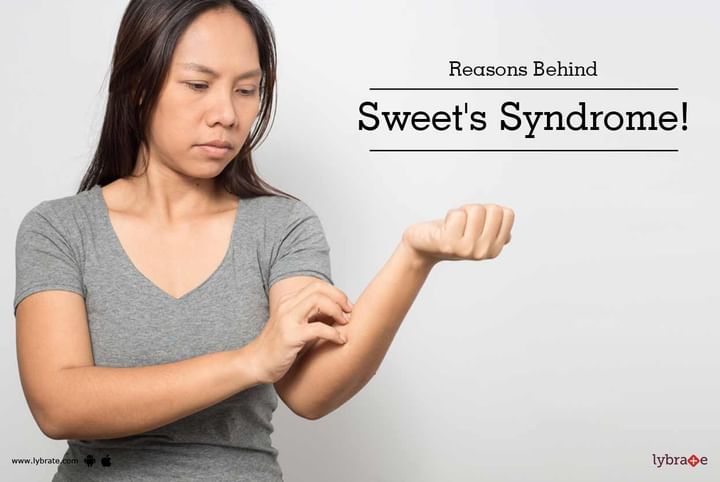Reasons Behind Sweet's Syndrome!
Sweet's syndrome is when you suffer from fever as well as painful skin lesions. These skin lesions usually appear on your head, arms and neck. The cause of Sweet's syndrome is still not known. However, it is known that certain medications, illnesses and infections are a possible trigger for Sweet's syndrome. Sweet's syndrome is such a condition that the symptoms usually go away in a few days but it may come back later on. To know exactly what causes Sweet's syndrome and what the symptoms of it are, read on.
Causes and Risk Factors:
As mentioned earlier, the exact cause of Sweet's syndrome is not known. However, there are certain factors which put you more at risk of getting it than others. Here they are:
- Gender: It has been proven that women are much more likely to get Sweet's syndrome than men.
- Age: The young and the elderly are at a risk of getting Sweet's syndrome. However, if you are in between 30 and 60 years of age you are especially at risk.
- Illnesses: If you have an upper respiratory Infection or inflammatory bowel disease then you are more likely to get Sweet's syndrome compared to others. Flu-like symptoms also put you more at a risk of getting Sweet's syndrome compared to others.
- Pregnancy: It has been seen that pregnancy increases your risk of getting Sweet's syndrome.
- Drugs: As mentioned earlier, certain antibiotics, nonsteroidal anti-inflammatory drugs as well as azathioprine are all linked to Sweet's syndrome.
Symptoms-
- Small Red Bumps: As mentioned earlier, the main symptom of Sweet's syndrome is that you will develop small red bumps on your neck, arms or head. The size of the bumps tend to increase quickly and then they spread into painful clusters.
- Fever: A fever is also very symptomatic of Sweet's syndrome. The small red bumps usually appear abruptly after you get a fever.
- Upper Respiratory Infection: The small red bumps also appear abruptly after you have got an upper respiratory Infection.
It should be noted that Sweet's syndrome is often associated with cancer and has commonly been linked to leukemia. If you wish to discuss any specific problem, you can consult a dermatologist.



+1.svg)
